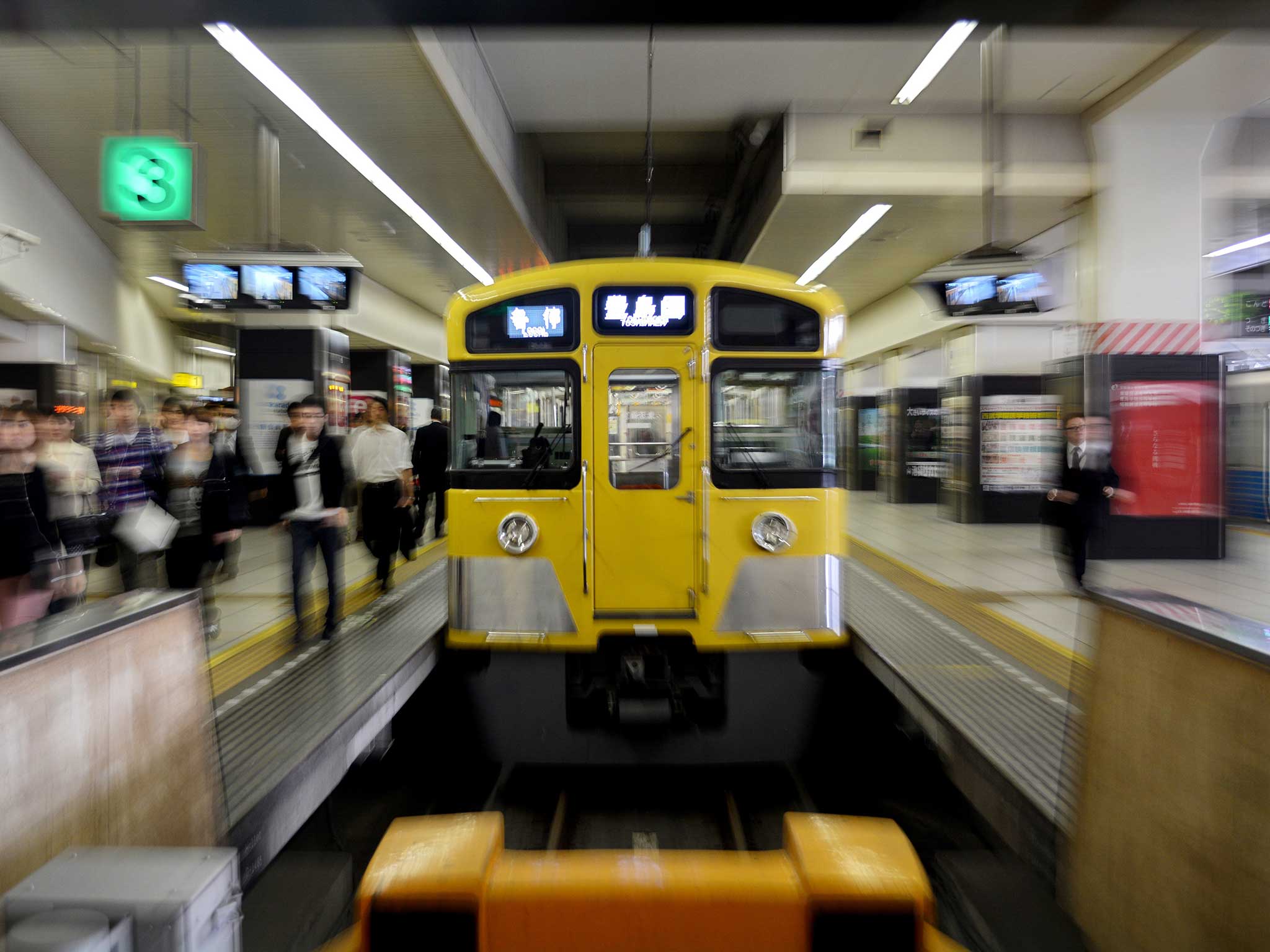Calm amid Tokyo chaos is a lesson in travel
Being raucous on the train would break the peaceful atmosphere, so no one acts that way

"Organised chaos" is probably the best description of Tokyo that I can think of... and there is nothing quite so organised or chaotic, at times, as travelling by train in Japan's capital.
The carriages that run on the dense network of more than 150 lines managed by 48 operators are spotless, on time and, despite 40 million people travelling on them every day, quiet. During the two years that I lived in Japan I thought my luck would break one day and I'd find myself on a rowdy carriage with music blaring and people shouting whatever the Japanese is for "and she was like, and I was like". But no. Even a late-night fight between two worse-for-wear salarymen was watched in complete silence by commuters. No one even tutted as the train was temporarily held up.
On the extremely rare occasion when someone on the underground or Shinkansen (bullet train) simply has to take a phone call, they always whip the mobile out of their bag or pocket in a nano-second and cover their mouths completely before proceeding to speak in the lowest octave possible for human hearing. It's all over very quickly: no one goes past the 10-second grace period.
In Britain, by stark, stark contrast, travelling on the train can be a somewhat less-than-peaceful experience – even in the solitary quiet carriage. Companies are phasing them out anyway because, in First Great Western's case – according to The Independent last week – train managers can't even be bothered to enforce the rules of the quiet carriage any more.
No enforcement is needed in Japan because of the concept of tatemae which, along with honne, is fundamental to understanding Japanese society. While tatamae has a dictionary definition of "a principle, policy or rule" it also has much greater meaning concerning one's "public face". Honne is a person's true or private feelings.
Being raucous on the train would break the peaceful public atmosphere, which is why no one acts that way. The respectful noise levels may also be partly to do with the fact that so many people are sleeping through their journey because of the ridiculous number of hours Japanese people still work, but even with everyone awake the noise remains at a minimum.
And it's not just people that are quiet; the trains themselves must not make a racket. Shinkansens are limited to a national noise standard of 70 decibels in residential areas and 75 decibels in commercial districts: less than the noise a car makes when it passes 10 feet away.
There are a huge number of signs plastered all over train carriages in Japan, from warnings about "headphone leakage" to not throwing up on your fellow passengers, so locals (and tourists) are warned. Unlike the signs in, for example, quiet carriages in this country, train travellers in Japan abide by them.

Join our commenting forum
Join thought-provoking conversations, follow other Independent readers and see their replies